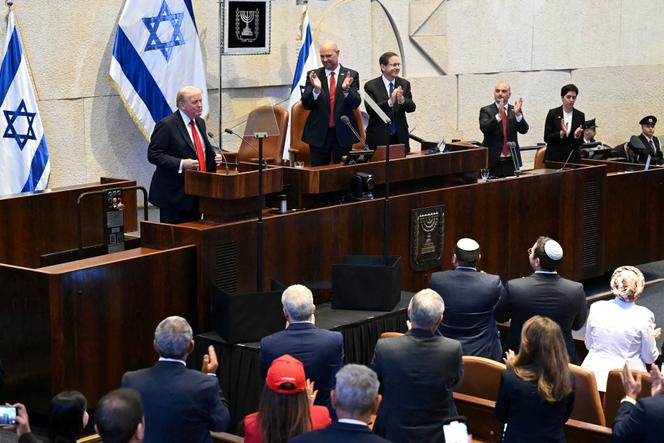


Inside the Knesset, Israel's parliament, lawmakers rose once, three times, 20 times to laud Donald Trump. They chanted the American president's name, applauding him with an exuberance rarely seen in a chamber usually home to fierce political confrontation. Lawmakers stood again each time tribute was paid to the military, to the wounded and the dead of the war, to the peace negotiators and to the heads of the military and intelligence services. The historic, almost joyful day for Israel was marked by overwhelming collective emotion at the return of the 20 living hostages, who had been freed by Hamas just hours earlier on Monday, October 13.
The speeches delivered by Trump and Prime Minister Benjamin Netanyahu were not marked by solemnity or any attempt to make history with their words. Instead, they conveyed relief, as if the last few hours in Israel had suddenly allowed the country to shed the immense burden it had carried since the security collapse of October 7, 2023, along with the devastating realization that it had failed to protect its Jewish citizens from pogroms committed by Hamas on its own soil. On Monday, as the hostages were reunited with their families, the end of the war seemed real, tangible and concrete for the first time in two years. The very idea of the "day after" seemed possible again.
You have 85.54% of this article left to read. The rest is for subscribers only.
